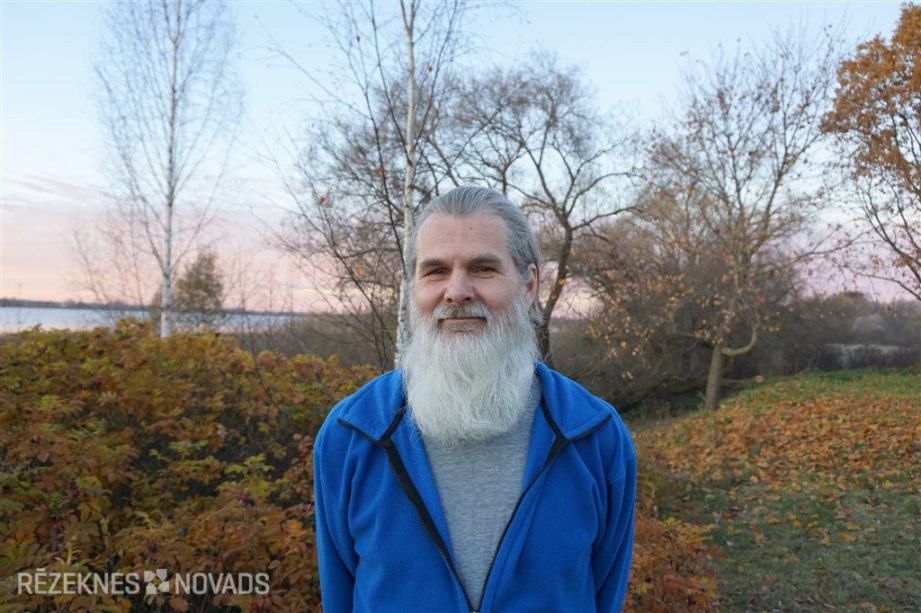In Memorandum. Ivars Janis grain (1951.14.02 – 2018.07.11)

In the early morning of 7 November, a brutal violence led to the life of Ivarian Jānis's grain. The life of Latgale's son, which was devoted to the expression of God's love and the support of his co-husband, was extinguished.
Ivars Janis was born on 14 February 1951 in Sweden in exile in the Latvian family. Father, valley, sports teacher Arthur grain, mother - Stanislava Sprua, Franz Tradog's brother Donate's granddaughter.
As the parents were Latvian records in athletic athletics, Ivars was a sporting childhood. Swimming, tennis, and athletic athletics added to popular American team sports, but the closest of the hearts was volleyball, he played in the American Latvian masterpiece Milvoku “aushi”. In his youth, Ivars participated in traditional Latvian activities: People's dances, embraces and summers were studying at the Garezer Latvian High School. Then he had a tendency to organize events. With his brother, he brought Latvian youth from all North America to the youth festival in Milvoki.
Directly with the youth Christian Week, organised by the Latvian Gospel Lutheric Church abroad, the spiritual search of Ivars and the closer to Jesus and his training began. However, as the American Hippy and Student Protesters had already done, Ivars engaged in actions against existing authors and arrangements. As an architectural student in Chicago, Ivars led demostrations against Vietnam's war and THE US invasion in Campuchia.
Ivars changed his study direction, obtaining a bachelor degree in art, philosophy and pedagogy at the University of Wisconsin. At the same time, with interest in the Eastern religions and Christianity, Ivars began to focus more heavily on the teachings of Christ and found a deeper point in the teachings of Christ's love in the new Commander.
With his long hair and his beard and his deep blue eyes, one of Ivarian nicknames in America was Jei. C) - English initials for Jesus Christ.
Ivars did not want to invest time to become a pastor himself, as he had always had a prayer evening, or a seminar, or simply to help someone. In 1999, Ivars grain returned to Latvia and became an active defender of Latgale and its citizens. He calmed Latvia's ecumenical cooperation by initiating and organising the first Latvian Chief of Christian confessions in Gaiziņa. Ivars, as Christian lad, invited the leaders of various Latvian Church leaders to gather together to prayer and friendship at the highest Latvian hill in Gaiziņa. The invitation was accepted. During their meeting, the believers also agreed to pray and praise. Such meetings have been held seven times and many church leaders have participated in them. This initiative began with the knocking of Ivarnivu, literally at the door of the leading confessions of the archbishops, saying, “When did you last pray with your brother?” With that, Ivars grain helped to lay the foundations for Latvia's excellent ecumenical cooperation. In Latvia, he was particularly proud of his charity coordination for poor and disadvantaged families in Latgale, where he had returned to live near the roots OF Franz Trassun's family, Silmalas parish in Vecružin. Ivars respected the authority of God, but he did not want to go into a hierarchical structure, but he had a great respect for the leaders of our confessions, he respected them enormously, developing close contacts with both the Archbishop John hawk, the Cardinal John Pulah, and the local priests, the priest of the Imants of Imanta, the Catholic priest Imanta Petrowski, and the Orthodox priests.
Ivars expressed strong views on God's name and defended the Bible's literary understanding of heaven and hell, the devil, and the world's inevitable cataklizim.
Ivars was happy to interpret modern politics in the biblical view. Just a few days ago, Ivars wrote that our apparent national security could quickly disappear, quoting a letter to Tesaloniaki 5: 3: “When it is peace and security, then there will suddenly be a post, as a maternity pain over a pregnant woman, and they will not be able to escape.”
While discussing the article of the Financial Times on the threat of solar storms for all electronic equipment, Ivars reminded him of the 16:10 “fifth (engel) of his discovery book, and then his kingdom was dark (...).
We must be prepared for the unexpected, said Ivars, “we will be mowing it.” In discussions on other contemporary topics, Ivars advocated scepticism in terms of evolution and respect for life abortion.
But over everything was Ivarian's special gift to find a common denominator with his co-husband, and to bring it to the understanding of God's name and the love of God. Ivars was looking for trouble, and he found Ipower in trouble. He could inspire the words of Jesus and find that we all deserve God's love, but that God expects it from us.
LELBA Archbishop Lauma Zushevica: “Ivars was a one-time child of God.” There was so one of him in the world! I'll never forget his words for young people. He spoke so hard, quietly, and indeed. His heart was so true that he wanted to save everyone! He longed to bring all the children of God together.
Ivars found - and pleased - and helped others find God's love. When he left for eternity, he sacrificed himself for the benefit of Latgale. The heaven is joined by a preacher who will help to remind: “Love one another as God has loved us”. Thank you, Ivar!
The removal of Ivars grain will take place on Thursday, November 15, at 13:00, from F. Trassa Museum “Colnasate”, in Signagala. In the earth's lap he would be in the tomb of the Trassu family.
Maris grain